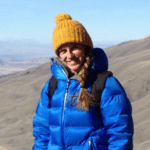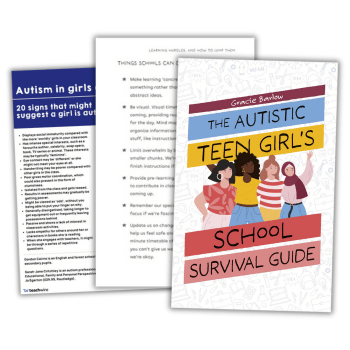Famous people with dyslexia – Everdark author Abi Elphinstone on being branded ‘unteachable’

Coping with dyslexia at school has helped shape some of the strongest aspects of my character…

- by Abi Elphinstone
- Author and former English teacher Visit website

The word ‘dyslexic’ doesn’t exist in the Unmapped Kingdoms, a location in my book Everdark.
The Lofty Husks probably took one look at it and decided it was far too difficult to spell or bother remembering. But if it had existed, it would probably have been used to describe 11-year-old Smudge.
Late for everything, not much good at spelling, constantly daydreaming and always finishing bottom of the class, Smudge is an overlooked and largely forgettable girl – at the start of the book, anyway.
But then she sets off on an adventure to save the Unmapped Kingdoms aboard a magical boat called The Coddiwomple, and she discovers that if she dares to believe in herself (and in magic) she might, in fact, be capable of extraordinary things. The inspiration for Smudge came from my own childhood. At school I was branded ‘unteachable’. Yes, I was a bit naughty (I see, in hindsight, that setting traps for your French teacher is unacceptable and stealing out of maths lessons to run wild in the forest is unwise), but at the heart of this wayward behaviour was another issue.
In class I was struggling to process information, structure my writing and concentrate, but I didn’t know how to talk to my teachers about this or ask for help. I only discovered after school that I’m dyslexic.
Character forming
I can’t pin all of my childhood naughtiness on my dyslexia, but I do think that it explains a few of the problems I had at school. I wish I’d known how to ask for help; I wish I’d learnt ways to make things a little easier; I wish I hadn’t doubted my abilities so often.
That said, I think coping with dyslexia at school – and finding my own methods to navigate it – has helped shape some of the strongest aspects of my character.
It took me seven years, three failed books and 96 rejection letters before I got my first book published. Although that journey was painful and embarrassing, it also taught me far more about joy and determination (not just in writing, but in life) than any of my good fortune ever has.
Inside every person who faces rejection there grows a quiet grit and a sense of joy at every little thing that does go right. Disappointing days stay firmly in perspective and I’d take that hard-won grit and joy over an easy book deal any day.
Since becoming an author, I’ve worked out various ‘strategies’ to make the writing process a little easier. Before I write a single word, I spend time gathering ideas. I read picture books, browse photography books, sketch maps and travel to new places to have adventures.
I wander into antiques shops and inspect their treasures, such as grandfather clocks, glittering gemstones, leather-bound books and unusual keys.
I pinch character names from everyday things, like shower gel (cue the surname ‘Pecksniff’ for the heroine in The Dreamsnatcher) and street signs (cue ‘Erkenwald’ – the name of the magical kingdom in Sky Song, which came from a road in London).
Fictional sketches
When I’ve seen enough to inspire a story, I draw a map of the world I want to write about, because it’s only when I start imagining my characters moving from place to place that a plot unfolds.
Sometimes I sketch my fictional world directly onto an Ordnance Survey map to make sure the geography works, and other times I draw on a blank sheet of paper using memories of interesting places I’ve discovered.
Often I get stuck when writing – days when the words sit stubbornly out of reach – but I’ve never found myself stuck when doodling an imagined world.
I don’t draw well. Nothing is to scale and often the sprawling lines make no sense to anyone but me, but I’m bold in my decisions.
I’ll have Wildhorn here (an island in Crackledawn, complete with waterfalls that flow in figures of eight and feather-tailed monkeys that jump through the trees); I’ll have Lonecrag there (home to ghastly ogre eels). Maps tip me into my stories.
Once I’ve mapped a journey, I break my story down into bullet-pointed chapters (and sometimes sketches of key scenes), then I feel confident enough to take the plunge and start writing. I used to think that the people who were lucky enough to become authors were the people who scored the highest marks in class.
But all you need to write a story, really, is an idea that nobody else has stumbled across yet and the determination to turn that idea into a book. And that is just as well for dyslexic people, because we notice things other people miss and we know that if we dare to believe in ourselves, we can be capable of extraordinary things.
Abi Elphinstone is the author of Everdark. It is now available as a dyslexic friendly edition (£7.99, Simon & Schuster Children’s). Follow Abi on Twitter at @moontrug. Visit her website at abielphinstone.com. Browse more resources for Dyslexia Awareness Week.










